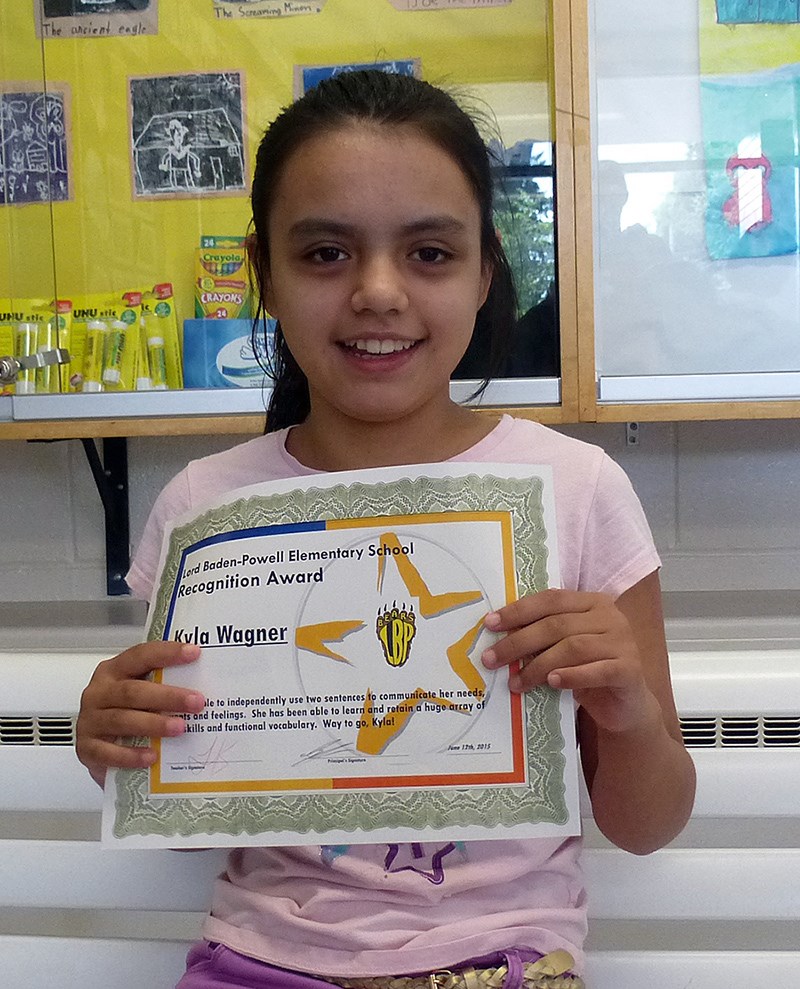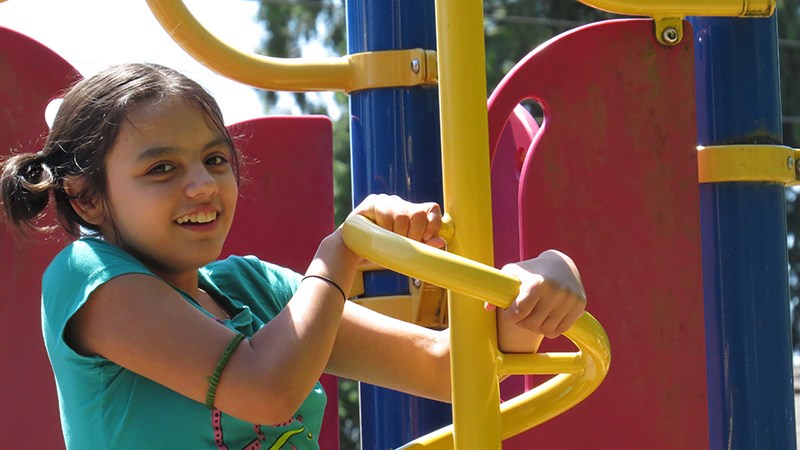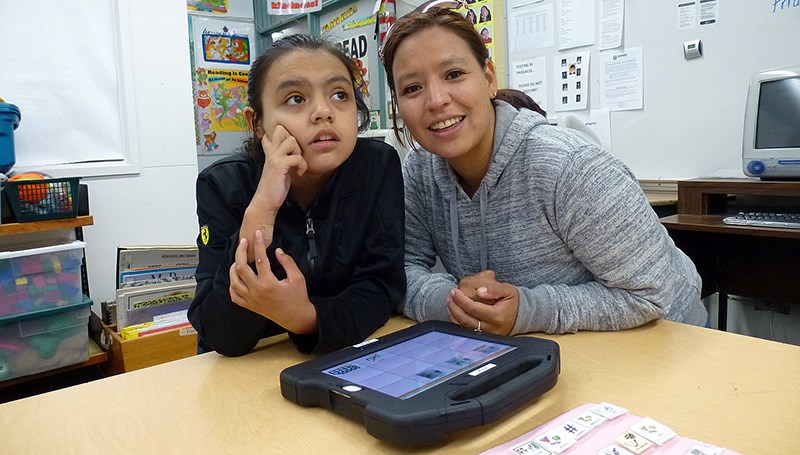How do you say goodbye?
Tomorrow, Kyla Wagner will — figuratively, if not literally — say goodbye to her teachers and fellow students at Lord Baden Powell elementary school in Coquitlam.
Kyla has autism and doesn’t speak. Using an iPad with the TouchChat app to communicate through picture symbols, the diminutive dark-haired girl will have to find symbols for “goodbye” and “I’ll miss you” as she says farewell to her teachers and prepares to move on to Montgomery middle school in September.

“She’s come a long way,” says Naomi Shiu, a skill development teacher and department head at Baden Powell who has been there for Kyla since the day she arrived kicking and screaming — literally, not figuratively — because she didn’t want to leave home and her mom.
“I could have let her do whatever she wanted but, then, there would be no learning, no growth, no nothing,” says Shiu, remembering how the girl expressed her frustration by biting, jumping off furniture, or running away because, other than pointing and some sign language, she had no other way to speak for herself.
“Compliance, compliance, compliance,” is how principal Marco Jankowiak describes those first months — years, really — getting Kyla to cooperate.
With the help and support of Anna Lenarczyk of School District 43’s Coquitlam Autism Spectrum Team (CAST) and learning services co-ordinator Christy Areshenko, Shiu developed a plan for working with Kyla using a system of communication called PECS (for picture exchange communication system) and a schedule of work and breaks.
With PECS, Kyla learned how to express herself using symbols. Her first three words were “more,” “help” and “finished.”
Shiu would hand an object, such as a pen, to Kyla every time the girl gave her the word picture. “That builds trust because [Kyla thinks] when I give her the picture, she gives me the pen, every time — guaranteed,” Shiu said. Eventually, Kyla learned what the words meant and in what context they should be used.
When she was able to communicate her wants and needs, Kyla could stay in the regular classroom longer and be with her peers, even going on stage during a Christmas concert, visiting Playland and going ice skating, carrying her laminated word pictures and a word ordering card with Velcro stickers in a fanny pack around her waist.
Later, she graduated to using TouchChat on the iPad, which required her to be able to categorize words and use them independently, and in order, without being prompted.
In Grade 3, she achieved a milestone when she learned to use the toilet independently, a life skill Shiu taught her using a picture system and a high degree of patience. “That was our entire focus for the year.”
This year, she learned about numbers, the sounds and names for letters, how to identify money and how to read a calendar. Shiu has also taught her about menstruation and how to change a pad.
Kyla’s mom, Priscilla Webber, noticed the changes in her daughter and is grateful for all the support. “They helped my daughter so much,” she says. “You can see that at home — she’s more calm.”

At first, other students were afraid of Kyla, not understanding that autism is a neurological disorder, affecting one in 80 children, and characterized by difficulties in communication, social interaction and understanding abstract concepts. Over time, and with Shiu talking to them about autism, they learned to accept her, said principal Jankowiak.
The experience taught the students to be more empathetic, he said. “It’s so normal, [seeing kids with differences in their midst], the kids don’t even blink an eye.”
While things aren’t perfect, they’re much better.
Kyla will still sometimes try to run out of the school and is occasionally disruptive at assemblies. You can see her get agitated, her teacher says; she’ll cock her head, covering one ear, and her sensitivity to noise requires her to wear noise-cancelling headphones for some activities. To settle herself, she heads to the calm room, a pink-walled room with no furniture and a single window that lets in the light.
One day, Kyla will finish school and her ability to express herself will be key to her survival. That’s why the day she was able to put two sentences together on her iPad, “I hurt chin, I need icepack,” after a pimple erupted on her chin, the team at Baden Powell was ecstatic.
Now, Shiu and the others hope Kyla’s intelligence and ability to learn will carry her through to middle school — and the rest of her life.
“It’s going to help her stay safe, have friends, open doors, all kinds of things,” Areshenko predicts.
Still, for all the satisfaction and high hopes, for Shiu, saying goodbye and sending Kyla off to the next stage of life is difficult and she’s not yet ready for it.
How do you say goodbye to someone you’ve grown to love?
“She’s not going to be my kid any more,” acknowledges Shiu. “But I have to let her go.”
• There are approximately 400 students with autism in SD43 schools, all with different levels of functionality, and all have their Independent Education Program. For each student diagnosed with autism, the government provides $18,850 annually in extra supports. Kyla will have a transition team working with her at Montgomery middle, a book of pictures of the school to study over the summer and has already visited the school three times.



